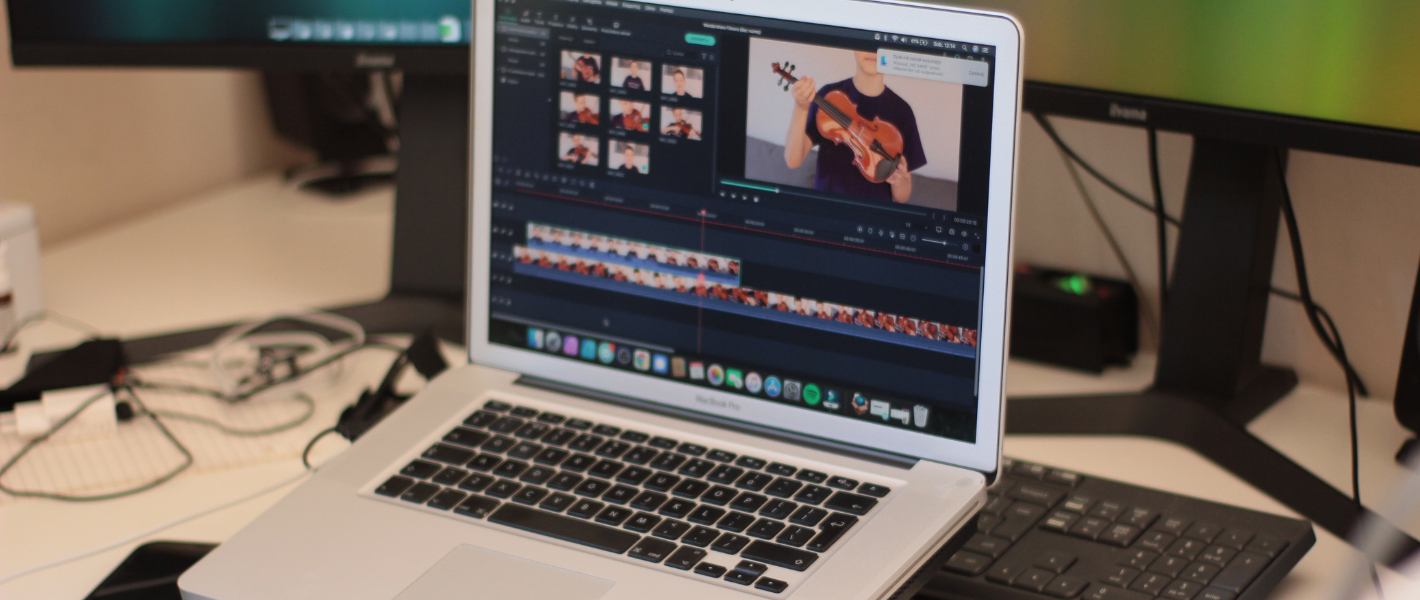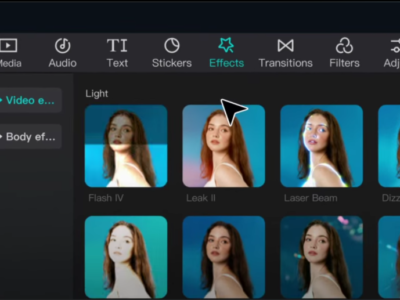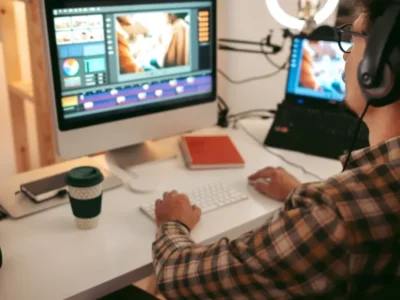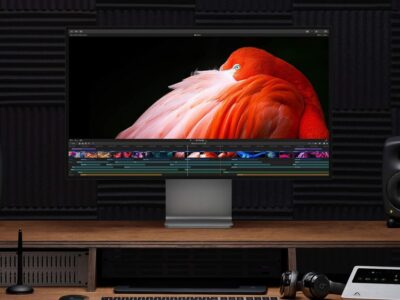Considering a career as a video editor? Great idea! But how does one go from desiring to be an editor to the point wherein they’re actually getting to work within the business?
If you love video editing, and on top of that, you are a storyteller, then it will be a walkover for you to get a job. Those skills put you among high demand for competent video editors. The area is also expected to grow by 18% in the next ten years. You just need to know where to apply and how to apply.
Here’s how to become a video editor or, rather, how to get a job as a video editor in 2020 – here is a very useful guide for you, which will be useful when you are trying to find your first job as a video editor!

1. Reach Out to Brands Directly
Think of your favorite brands. Most of them always are in need of new videos, and therefore constantly look for fresh and vibrant talent. Brands are also realizing the importance of video marketing. Up to 86% of businesses use video as a marketing tool.
Your part? Show them your creativity. Contact. Collect a portfolio, build it up, make it sparkle, and send it their email. Go beyond. Do not expect that they will come to you. Go right ahead and knock on their door (well, email)!
2. Check Out Local Studios for a Job as Video Editor
Local studios are gold mines. Often, they’re the first stepping stones for video editors making a mark in the industry.
These studios take on every kind of video project: commercials, documentaries, everything. It is a very good place to learn a little bit about everything and see what type of video you prefer to edit. In which case, all that you have to do is write down the best video edits you have and, therefore, get to show them. In case they like your work, then they are surely going to give you a chance to work on their projects. But if they fall in love with your work, then they will surely hire you as a full-time video editor!
3. Apply as an Assistant Video Editor
Every expert started somewhere, often as an assistant. You can do the same. Be an assistant editor for some time before you get to be the main. It is very informative and will give you the chance to learn and meet people within that industry, besides assisting on big jobs and seeing how everything falls into place.
Plus, it’s a fantastic way to network and make connections that could lead to bigger opportunities.
4. Freelance Platforms are Your Friend
Search for jobs online. Upwork, Freelancer, Fiverr—all of these websites teem with businesses looking for video editing talent. There you can build a profile, showcase some of your best work, and finally start bidding for projects and building your career with different clients and industries. These are perfect for making a diverse portfolio and gaining experience in working with all sorts of people.
But it’s always not just a walk in the park to get a job on these freelance platforms, offering stiff competition and relatively lower rates than other options we’ve given.
5. Engage in Online Communities for Video Editors
Of course, these days, fans and editors meet online in lots of different places. Websites like Vimeo or Reddit have groups where people share their videos and discuss them. That is a possibility to show off the work and learn from others.
But that’s not the only benefit of joining these platforms.
And this is the place where people come mostly for networking, but they end up collaborating with each other. Many even land up with some great jobs. Participate in these communities, share your work, and stay ready for constructive criticism; your next job can be just a conversation away.
6. Film Schools Aren’t Just for Learning
If you are in school, make sure to work the resources in school. They usually have some kind of job board and can reach out to an extensive network that includes alumni and industry contacts. If you didn’t go to film school, countless establishments would love nothing more than to have the cream of the industry at their events.
There will also be an opportunity for you to attend workshops, seminars, and even networking events. It is not the place for looking for a job, but you get to meet people and have ideas about video editing.
Become a Filmmaker FREE eBook
In this Free 99 pages PDF file, you will find:
✔️ Camera Settings
✔️ Lighting
✔️ Directing
✔️ Post-Production
✔️ Website & online presence
✔️ and more

7. Collaborate with YouTubers
In fact, the expansion of YouTubers opens great possibilities for video editors, as quite a number of people working in this niche need their material to be edited, so numerous opportunities arise and even for rookies to gain some experience and earn some money. However, it is paramount to understand that the marketplace is competitive. If this path does not provide you with the professional workflows realized from within traditional editing environments, you can also supplement your skills with Technical Workflow training to ensure the foundation is firm.
8. Start as a Runner in a Post-Production Studio
So, if none of the above are any use and it really doesn’t work, then why not start out at a post-production studio as a runner? Post-production studios, in general, depending upon locale, may not usually, normally, have a lot of space but usually have a great deal going for them. As a runner in the studio, you will gain practical experience in video editing. You also will be able to be exposed to learning various edit skills, very important, from the pros there. And you will meet people who, in the future, might help you in the industry. It’s worth to put the effort!
9. Attend Film Festivals and Network with Filmmakers
It presents the film festivals as good places for connection and networking in the video-editing world. Besides, most of these programs are presented online these days, which makes it much easier to network.
You also get to interact with the professionals in the respective line of work—for example, an editor or a director—when you attend festivals that showcase works that you are interested in editing. On the other hand, one could always reach out and collaborate with filmmakers themselves through websites, such as Vimeo or film worker groups available at local forums. Some of those made connections might probably be an opportunity for jobs and eventually result in establishing names in the said field.
10. Always be Learning to Become the Best Version of a Video Editor You Can Be
If you want to keep growing, then keep learning!
Video editing is always changing, with new technology and techniques coming out all the time.
Keep pace with modern tendencies, renewal of software, and industry news. Be inquisitive and open for learning and adjusting by attending workshops, online courses, webinars. Take part in your improvement not to be one step behind your competitors.
Probably the most important are your resume and cover letter when applying for a video editing job. Make your resume to reflect your skills and experiences. If you have some certifications, awards, or some great projects, include them. Write a cover letter with as much enthusiasm in video editing and how that would be a contribution to the company. Employers view a lot of applications for a single post; therefore, ensure that yours is captivating enough to distinguish it.
To Wrap It Up
So, here are the 10 ways you can land your first job as a video editor. Figuring out how to become a video editor and then how to get a job as a video editor can be a fun journey. Just keep trying, keep learning, and you’ll find the right job for you. Remember, every cool video started with someone like you making it look great.
Become a Filmmaker FREE eBook
In this Free 99 pages PDF file, you will find:
✔️ Camera Settings
✔️ Lighting
✔️ Directing
✔️ Post-Production
✔️ Website & online presence
✔️ and more

Explore related content

Video Editing Tips CapCut: Tips, Tricks, and Techniques
Video editing is an art, and there are proper tools and techniques, through them everybody… Read More »Video Editing Tips CapCut: Tips, Tricks, and Techniques

Factors to Consider Before Buying a Video Editing Computer
From helping grow your brand and business to editing just for fun with the love… Read More »Factors to Consider Before Buying a Video Editing Computer

Best Video Editing Monitors in 2024
In the evolving world of video production, the importance of a high-quality monitor cannot be… Read More »Best Video Editing Monitors in 2024